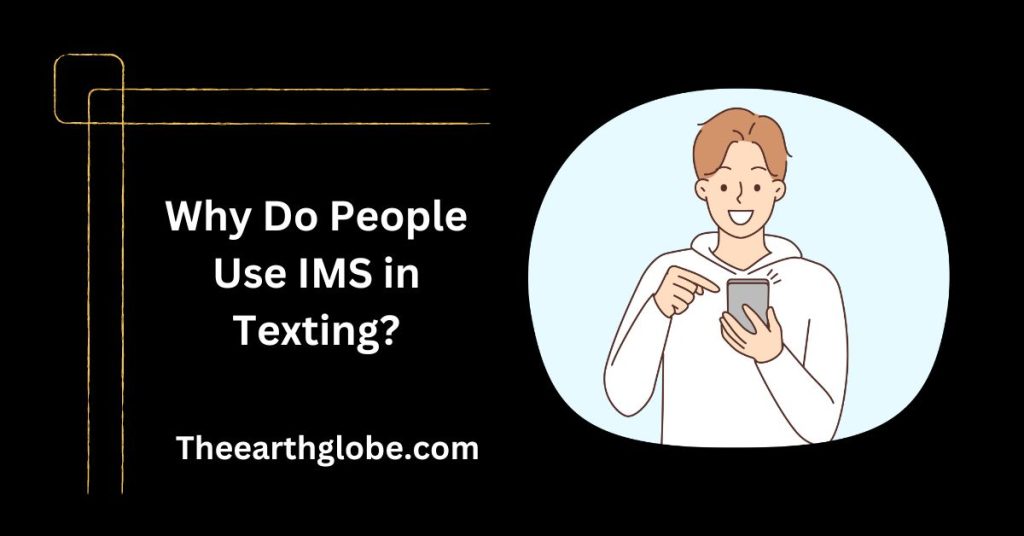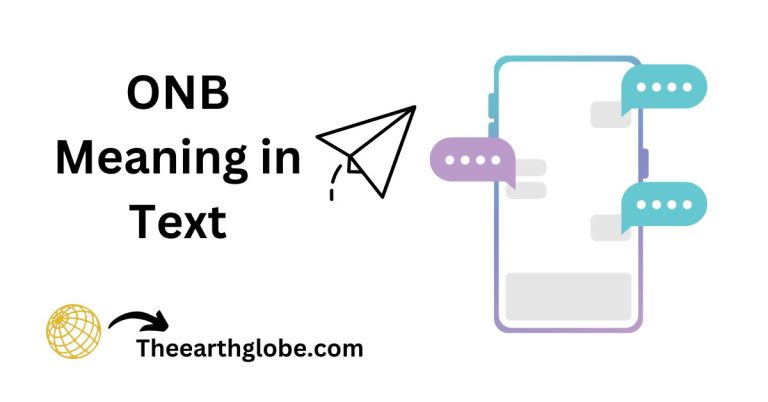IMS Meaning Text: Understanding the Acronym in Messaging
With the rise of messaging apps and online communication, we often come across various acronyms and abbreviations. One such term is IMS, commonly found in text messages. But what does IMS meaning text refer to, and how is it used in everyday communication? In this article, we’ll break down the meaning of IMS and explore its significance in modern texting language.
What Does IMS Mean?
IMS is an abbreviation for “I’m sorry,” commonly used in texting or online communication to quickly express regret. It’s a shorthand way of apologizing for a mistake or a situation where someone feels they have wronged another person.
When to Use IMS
IMS is typically used when you want to apologize for something you regret, often in casual conversations. It’s a convenient way to acknowledge a mistake or express remorse for actions that may have hurt someone, aiming to make amends.
| Abbreviation | Meaning | Emotion |
|---|---|---|
| IMS | I Am Sorry | Apologetic |
Safe for Work and Children?
Yes, IMS is a safe acronym to use in both professional and casual environments. It’s widely understood and doesn’t carry any inappropriate connotations, making it suitable for all ages.
Meaning on Social Media Platforms
- Snapchat: IMS means “I’m sorry”
- Instagram: IMS also means “I’m sorry”
Year IMS Became Popular
IMS began trending in 2022, becoming widely used in text messaging, especially among younger generations.
Examples of IMS in Use
“I didn’t mean to act that way. IMS!”
Emotion: Reflective
Intent: A quick apology for past actions, using IMS to keep it brief and straightforward.
“I totally forgot to respond. IMS for not texting back sooner!”
Emotion: Regret
Intent: Acknowledging a mistake and offering a quick apology.
“IMS, can we start over?”
Emotion: Apologetic
Intent: Asking for forgiveness and hoping to make amends.

Why Do People Use IMS in Texting?
In texting, the goal is often to communicate quickly and concisely. Typing long sentences can be cumbersome, especially when users are multitasking or using a mobile device. That’s where abbreviations like IMS come in handy. Instead of writing “I’m sorry,” a person can simply type IMS, which conveys the same message in less time.
IMS meaning text has become part of the evolving digital communication landscape, where short and to-the-point messages are preferred. This shorthand makes conversations smoother and faster without losing the intended emotion or sentiment behind the message.
How Is IMS Meaning Text Used in Conversations?
The use of IMS in text conversations is quite versatile. It can be used in both formal and informal contexts, depending on the relationship between the people communicating. Here are a few examples of how IMS meaning text might appear in conversations:
- Casual Use: If a friend forgets to respond to a message, they might text back with “IMS for not replying sooner.”
- Apologizing for Minor Issues: In case someone is late to a meeting or a chat, they can use “IMS for the delay” to acknowledge their tardiness.
- Quick Acknowledgment of Mistakes: When someone makes a minor error, they can quickly apologize by saying “IMS about that.”
In each of these instances, the use of IMS allows the person to apologize in a simple, time-efficient manner without detracting from the sincerity of the apology.
Post You Might Like: Spelling Bee Answers
IMS Meaning Text in Social Media
Apart from text messaging, the acronym IMS is also used on social media platforms such as Twitter, Instagram, and Facebook. People often use IMS in comments or posts when they want to acknowledge a mistake, apologize to followers, or quickly express regret. On platforms where brevity is key, IMS can be a useful way to keep communication short while still conveying the appropriate sentiment.
For example, if someone posts incorrect information, they might follow it up with a comment saying, “IMS for the misinformation earlier.” This quick acknowledgment helps maintain engagement without overwhelming the audience with lengthy explanations.
IMS Meaning Text in Professional Communication
Though IMS is mostly used in casual settings, there are instances where it might appear in more formal or professional communication. In work chats or professional settings, especially where team members communicate via instant messaging apps like Slack or Microsoft Teams, IMS can be used to apologize for small oversights or delays.
For instance, an employee may say “IMS for missing the deadline” to quickly acknowledge a missed task. While formal apologies in business settings are usually longer, IMS is a convenient shorthand for minor issues where a detailed apology might not be necessary.
Variations of IMS in Texting
Like most abbreviations, IMS meaning text has variations and can be modified to fit different contexts. Some common variations include:
- IMS2U: “I’m sorry to you,” used when the apology is specifically directed at one person.
- IMS4L8R: “I’m sorry for later,” indicating an apology in advance for a future delay.
These variations make IMS a flexible acronym that can be adapted based on the situation.
Does IMS Always Mean “I’m Sorry”?
While IMS predominantly stands for “I’m sorry,” it can have other meanings depending on the context. In some technical or business environments, IMS might refer to “Instant Messaging Service” or “Information Management System.” However, in the realm of texting and casual communication, IMS meaning text is almost always understood to mean “I’m sorry.”

The Evolution of Texting Language and IMS
Early Texting Limitations:
Character limits and T9 keyboards led to the need for abbreviations to save time and space in early mobile communication.
Birth of Acronyms:
Acronyms like IMS (I’m sorry) became popular to quickly convey emotions or phrases without typing long messages.
Efficiency in Communication:
The use of acronyms provided faster, more efficient communication in texting, especially for common phrases like apologies.
Smartphone Advancements:
Despite the rise of smartphones with full keyboards, acronyms like IMS persisted due to their convenience and simplicity.
Social Media and Messaging Apps:
Platforms like Instagram, Snapchat, and Twitter encouraged brief interactions, keeping acronyms like IMS relevant in daily conversations.
Cultural Adoption:
Younger generations, particularly Gen Z, embraced acronyms like IMS to streamline communication and stay in sync with fast-paced, digital interactions.
Widespread Use of IMS:
IMS is now a common shorthand for offering quick apologies, widely recognized and accepted in both texting and social media contexts.
Reflection of Changing Communication Styles:
The continued use of acronyms like IMS shows how modern communication prioritizes speed and convenience without sacrificing emotional expression.
Adapting to Modern Needs:
Even with more advanced technology, the preference for shorthand abbreviations like IMS indicates our ongoing need for efficient communication methods.
Continued Evolution:
As texting language evolves, acronyms like IMS remain a significant part of how we interact, ensuring quick, meaningful exchanges in a busy digital world.
Read To Know About: The Best Wood for a Cutting Board
The Role of IMS in Modern Communication
The role of IMS meaning text in modern communication is to provide a fast, efficient way to express regret or apology. In the fast-paced digital world, where conversations are happening across multiple platforms simultaneously, people don’t always have time to craft long messages. IMS allows users to keep the conversation moving while still showing courtesy and respect.
Moreover, as texting becomes the dominant form of communication for younger generations, the use of abbreviations like IMS is likely to continue growing. These shortcuts save time and effort while making it easy to apologize or acknowledge mistakes.
Should You Use IMS in Formal Settings?
While IMS meaning text works well in informal conversations, it’s important to consider the context before using it in formal settings. In professional environments, abbreviations may come across as too casual or unprofessional. If you’re communicating with a superior or someone outside your immediate team, it’s better to type out a full apology to maintain a level of formality.
That said, IMS can be appropriate for internal team communication, especially if you work in a casual or tech-savvy office where abbreviations are commonly used.
Common Misunderstandings of IMS Meaning in Text
While IMS meaning text is widely understood as “I’m sorry,” some people may confuse it with other meanings, especially in technical contexts. For instance, in business or IT environments, IMS could refer to “Instant Messaging Service” or “Information Management System.” This confusion can sometimes lead to misunderstandings, especially when people use the acronym in different contexts. To avoid confusion, it’s important to clarify the meaning of IMS based on the situation and the people you are communicating with.
When Not to Use IMS in Texting
Although IMS is a convenient way to apologize quickly, there are certain situations where it may not be appropriate. For example, if you’re apologizing for a serious mistake or addressing someone in a formal setting, typing out the full phrase “I’m sorry” shows more sincerity and effort. Using IMS in such cases may come across as too casual or insincere, which could negatively impact how the recipient perceives the apology. Knowing when to avoid shortcuts like IMS can ensure that your message conveys the right level of seriousness and respect.
The Popularity of Acronyms Like IMS Among Younger Generations
Acronyms like IMS have become increasingly popular among younger generations who value quick and efficient communication. With the rise of social media, texting, and instant messaging apps, abbreviations like IMS are used to keep conversations short without sacrificing meaning. Younger people, particularly Gen Z, are known for embracing texting shorthand to streamline communication. The use of acronyms has become a staple in their daily digital interactions, and as a result, IMS meaning text has gained widespread usage in their casual chats.

IMS and the Future of Texting
As we move further into a world dominated by digital communication, acronyms like IMS will continue to play a role in how we communicate. With the increasing use of messaging apps, social media, and instant messaging services, the need for quick, efficient communication methods will only grow.
The future of texting may see even more abbreviations and acronyms enter the mainstream, continuing the trend of making communication faster and more concise. However, it’s essential to maintain a balance between efficiency and clarity, ensuring that messages are still understandable and respectful.
Conclusion
In conclusion, IMS meaning text stands for “I’m sorry” and is widely used in texting and social media. This acronym has become a convenient way for people to apologize quickly without typing out a full sentence. While it is mostly used in informal conversations, IMS has found its way into professional settings as well. Understanding the use of IMS and how it fits into modern communication can help you navigate digital conversations more efficiently. Whether in casual chats or on social media, IMS remains a popular and practical acronym in today’s fast-paced texting world.
Also Read: Courselinkfree.us
Frequently Asked Questions (FAQs)
What does IMS mean in texting?
IMS stands for “I’m sorry” and is commonly used to offer quick apologies in text messages.
When should I use IMS in texting?
Use IMS when you want to apologize quickly and casually in informal conversations, like with friends or family.
Is IMS used in formal communication?
IMS is generally too informal for professional settings. In formal communication, it’s better to write “I’m sorry.”
Can IMS have other meanings?
Yes, in business or technical contexts, IMS can mean “Instant Messaging Service” or “Information Management System.”
Why do people use IMS in texts?
IMS saves time and effort by abbreviating “I’m sorry,” making it quicker to apologize in digital conversations.
Is IMS a common acronym in social media?
Yes, IMS is often used on platforms like Twitter or Instagram to offer quick apologies or acknowledge small mistakes.
What are other variations of IMS?
Variations include IMS2U (“I’m sorry to you”) and IMS4L8R (“I’m sorry for later”), adapting to different contexts.
Is IMS more popular among younger generations?
Yes, younger generations, especially Gen Z, frequently use acronyms like IMS for faster communication in casual settings.
Is IMS appropriate for serious apologies?
No, for more serious situations, it’s better to use a full, sincere apology rather than an abbreviation like IMS.
How does IMS impact texting communication?
IMS streamlines conversations by allowing users to express apologies quickly, helping maintain smooth communication.







